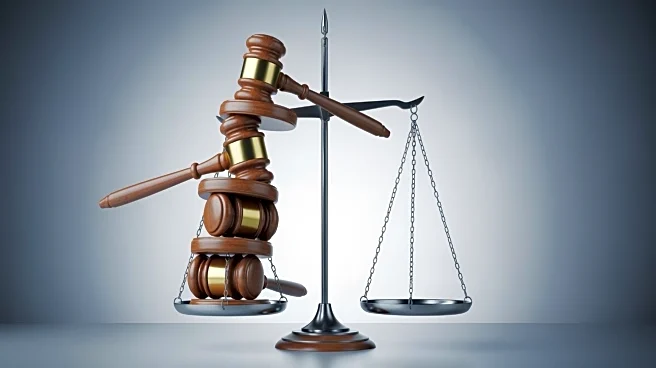What's Happening?
Trucking companies in the U.S. are facing increasing challenges due to 'nuclear verdicts,' which are legal judgments exceeding $10 million in civil suits related to crashes. These verdicts have led to a significant
rise in insurance premiums and legal costs, impacting the financial stability of fleets. According to David McKnight from The Brattle Group, commercial auto liabilities have grown by 10.1% annually since 2016, marking the highest increase among insurance segments. In 2022, costs related to the U.S. tort system reached $529 billion, with $58 billion attributed to commercial vehicles. The rise in nuclear verdicts, which increased by 27% from 2022 to 2023, is causing fleets to self-insure, further squeezing their profit margins. High-profile cases, such as a $450 million punitive damage verdict in Missouri, highlight the growing trend of substantial jury awards against trucking companies.
Why It's Important?
The surge in nuclear verdicts is reshaping the risk landscape for the trucking industry, leading to unsustainable insurance rates and financial strain on companies. This trend affects not only the trucking companies but also the broader economy, as increased operational costs could lead to higher prices for goods and services. The legal environment is perceived as increasingly hostile, with fleets and manufacturers feeling targeted by large jury awards. This situation could lead to changes in how companies approach risk management and insurance, potentially influencing industry standards and practices. The trucking industry, a critical component of the U.S. supply chain, faces significant challenges in maintaining profitability and operational efficiency amid these rising costs.
What's Next?
The trucking industry may need to explore new risk management strategies and advocate for legal reforms to mitigate the impact of nuclear verdicts. Companies might increase investments in safety technologies and training to reduce the likelihood of accidents and subsequent lawsuits. Additionally, there could be a push for legislative changes to cap damages or reform tort laws to create a more balanced legal environment. As fleets and manufacturers navigate these challenges, they will need to balance legal compliance with financial sustainability, potentially leading to industry-wide shifts in how risks are managed and insured.
Beyond the Headlines
The trend of nuclear verdicts raises ethical and legal questions about the fairness and sustainability of the current tort system. The disproportionate impact on smaller fleets and the potential for increased consolidation in the industry could alter the competitive landscape. Moreover, the focus on punitive damages and the role of personal injury lawyers in driving up awards may prompt discussions about the ethical responsibilities of legal professionals and the need for reform in how damages are assessed and awarded.








